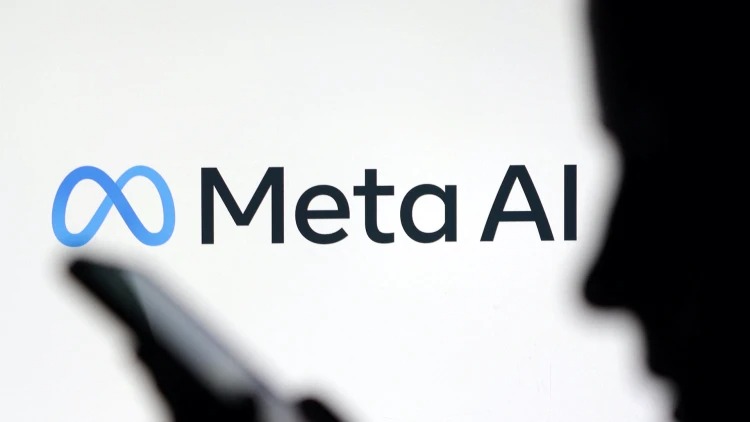- | 9:00 am
Anti-aging technology is here. And the Middle East is getting ready
The region is leading research to solve aging and devise interventions that enable people to lead longer and healthier lives

A few years ago, on a hot and humid July evening at a hotel in Riyadh, a conference on advancement in health sciences was jammed with people eager to learn the secrets of a healthy, long life. When a speaker asked how many people wanted to live to one hundred if they could remain healthy, almost every hand went up.
Aging is the creeping dysfunction of everything, all at once. Our endocrine system sags, our arteries clog, our brains fog, and we falter and fail. But every research breakthrough to reverse all that has been followed by confusion.
Still, researchers plunge ahead to ensure that answers, and maybe even an encompassing solution, are around the corner.
In 2022, the quest was kicked off by the Hevolution Foundation. This Saudi-backed non-profit organization has an annual budget of up to $1 billion to spend on research and entrepreneurship in the emerging field of healthspan science.
UNTAPPED POTENTIAL
Understandably, increasing people’s “healthspan” to maximize their chances of avoiding disease and cutting down the share of their lives being frail and infirm is an industry with huge untapped potential.
The more we know about the body, the more we realize how little we know.
“A key goal of healthspan research is what is referred to as ‘compression of morbidity.’ The context is important, though: morbidity would be compressed due to an expanded healthy lifespan. People would live to a much older age before running into debilitating age-related diseases,” says Hevolution Foundation’s CEO Dr. Mehmood Khan, a former Mayo Clinic endocrinologist and the chief scientist at PepsiCo.
“While we may not be able to pinpoint the exact length of the ultimate period of compressed morbidity, we can work to extend healthspan as much as possible,” he adds.
This November, Hevolution Foundation is hosting the Global Healthspan Summit, bringing together scientists, investors, and thought leaders for a healthspan- and longevity-themed event in Riyadh.
Recent advances in longevity biotechnology suggest that substantially increasing life expectancy may be possible.
“The region is poised to become a crucial player in longevity R&D, particularly in the realm of drug discovery aimed at enhancing human healthspan and lifespan,” says Ali Tariq, founder of Fivescore Labs, the UAE-based longevity consumer brand in the region.
“This rapidly growing sector is anticipated to be the most advanced ever, overlapping with numerous other sectors – from biotech and pharmaceuticals to fintech and insurtech,” Tariq adds.
Co-founded by McGill and Harvard-trained scientists, Fivescore Labs aims to lead the consumer longevity revolution across the Middle East with science-backed protocols and evidence-informed supplements.
ROLE OF GOVERNMENTS
In 2020, the longevity market in the UAE exceeded $19 billion, with forecasts predicting a growth rate of 8.5% CAGR, potentially reaching $32 billion by 2026.
In 2016 only 1% of the UAE population was 60 and older, but by 2050 this number is expected to reach 16%, highlighting the need for greater awareness of healthy aging.
And so there are attempts to understand the underlying causes of aging—and how drugs might slow down.
In the UAE, a strategic partnership has been established between Sharjah Research Technology and Innovation Park and Deep Knowledge Analytics to advance and map the longevity sector.
One of the big themes in the field is genetic screening which can alert people to their susceptibility to life-limiting conditions so that they can take risk-reducing action. The UAE launched one of the world’s most comprehensive genome programs.
“It is expected that Abu Dhabi Health Services Company will apply the results of the Genome Program to ensure the delivery of world-class healthcare services,” says Tariq.
“In Saudi Arabia, the Hevolution Foundation’s work demonstrates the significant scale of ambition of regional initiatives to combat the forces of aging and invest across scientific advances in the field.”
Since 1900, the human life span has increased by 30 years, but Saudi Arabia and the UAE, which have a relatively young population with a median age of around 31, are experiencing increasing rates of obesity, heart disease, and diabetes.
What the region aims for has slightly less to do with living longer than people’s quality of existence.
“While diabetes and heart disease are not exclusively diseases of aging, the risk of developing heart disease and certain types of diabetes increases with age,” says Khan. “If we can slow down the aging process, people should, in theory, develop such diseases and conditions much later in life. In that sense, we can help strike a major blow against them.”
He adds that countries in the Gulf region, like the rest of the world, are grappling with increased rates of these diseases and have a fundamental role in developing advanced therapies for them.
With the World Health Organization citing diabetes and heart disease as leading causes of death in the region, Tariq says the Middle East is not just facing this challenge – it’s rising to meet it, pursuing a holistic approach that encompasses lifestyle changes, drug developments, interventions, and the application of new technologies.
Initiatives like Qatar’s Step into Health program promote regular physical activity, while the UAE’s annual Dubai Fitness Challenge campaign aims to transform Dubai into one of the most physically active cities in the world.
“GCC countries are also implementing strict regulations on food labeling and cigarette packaging, targeting two significant lifestyle risk factors for these diseases,” he says.
Complementing these lifestyle initiatives are advancements in drug development and interventions. The region’s robust investment in biomedical research, exemplified by institutions like Saudi Arabia’s King Abdullah University of Science and Technology and UAE’s Dubai Science Park, has led to the exploration of novel therapeutic targets.
Researchers are developing clinical testing drugs that not only control symptoms but also address the root causes of these diseases.
“Artificial Intelligence (AI) and machine learning are employed to predict disease risk, optimize treatment plans, and monitor disease progression. For example, the UAE’s national program for AI aims to integrate AI systems into healthcare, enhancing the prevention and
management of chronic diseases,” says Tariq.
AI is also being used to identify new drug targets, optimize clinical trials, and personalize treatment strategies, which could accelerate the development of anti-aging interventions.
Even biological reprogramming technology is on the cards when it comes to healthspan.
“A specific type of biological reprogramming – cellular reprogramming – is one potential avenue to extending healthspan,” says Khan.
It’s a science that aims at extending life via such techniques as flushing out worn cells from the body or inserting genes into adult cells that convert them into stem cells.
“Hypothetically, cellular reprogramming could extend healthspan in a variety of ways, including tissue regeneration, rejuvenation of aging cells, and potentially even by modulating factors involved in the aging process.”
Interestingly, in the pharmaceutical landscape, the focus is gradually moving away from curing individual diseases towards targeting the aging process itself, a root cause of many chronic diseases and decline.
“Geroprotective drugs could help people live longer, healthier lives, dramatically extending both healthspan and lifespan,” says Tariq.
“These developments are still in their early stages. Nonetheless, the progress we’ve made so far is encouraging.”
To accelerate healthspan innovation, building an ecosystem and investing in startups developing therapies and technologies that target the root causes of aging is critical.
“We plan to invest in startups developing therapies that target the root causes of aging. We plan to do this in the region and globally. We are ramping up our investment,” says Khan.
CHANGING HEALTHCARE SYSTEM
And then, there are significant social questions. As individuals live longer and healthier lives, the focus of healthcare needs to shift from managing acute, short-term illnesses to addressing chronic diseases and maintaining long-term health.
“This change requires healthcare systems to be proactive rather than reactive, emphasizing preventive healthcare and early detection. Governments are launching initiatives to promote healthy lifestyles and chronic disease management,” says Tariq.
Longevity science may also call for increased specialization in geriatric care as more individuals live into their 90s and beyond. A new cadre of healthcare professionals specializing in age-related conditions will be needed.
“This is a significant consideration for the Middle East, where healthcare infrastructure is rapidly developing, but the focus has been more on building general hospitals rather than specialized geriatric care facilities,” adds Tariq.
The increasing lifespan also necessitates changes in health insurance and healthcare financing. As individuals live longer, the cumulative cost of healthcare over a lifetime is likely to increase.
“Policymakers in the Middle East need to ensure that health insurance schemes are adaptable to these changes. Countries like Saudi Arabia and the UAE are already reforming their health insurance systems, promoting private sector participation to diversify funding sources,” adds Tariq.
Scientists have successfully intervened in aging in a variety of animal species, and so there is reason to believe it could be achieved in people. We are, after all, biological machines.
Tariq says a balanced longevity regimen is a regular exercise, a nutritional diet, and adequate sleep, supplementing with science-backed compounds to help support cellular health in the fight against aging.
But would knowing you had longer to live to decrease your willingness to make the most of life? That’s another story for another day.







































